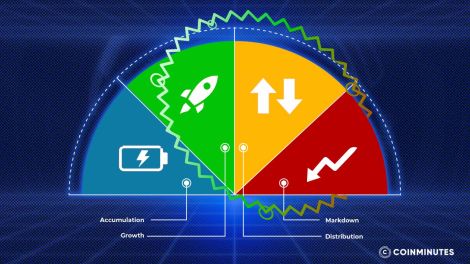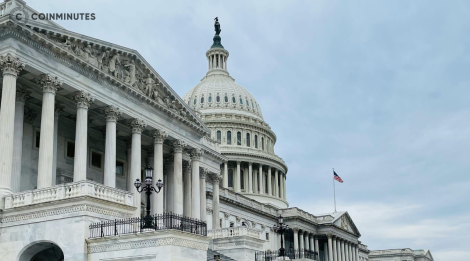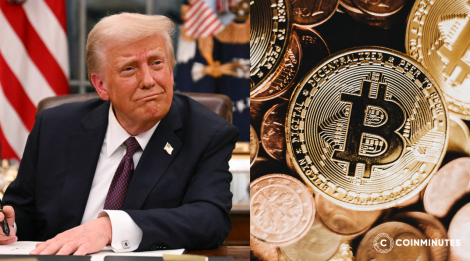US Mortgage Regulator Considers Bitcoin to Ease Housing Crisis

Your Bitcoin stash might finally help you buy a house. In a stunning policy shift, federal housing regulators are eyeing cryptocurrency as a potential lifeline for America's struggling homebuyers.
Imagine using your digital wallet to unlock a front door. That's essentially what the Federal Housing Finance Agency (FHFA) is considering.
Why Your Crypto Portfolio Suddenly Matters
The American housing market is on life support. Full stop.
And federal regulators know it.
On June 23, FHFA Director Bill Pulte stunned both real estate and crypto worlds with a single tweet on X. His agency would formally "study the usage of cryptocurrency holdings as it relates to qualifying for mortgages."
Why should you care?
Because the FHFA controls Fannie Mae and Freddie Mac – the financial giants backing roughly half of America's $12 trillion mortgage market. When they change rules, millions of homebuying opportunities appear or vanish overnight.
"We're specifically exploring whether Fannie Mae and Freddie Mac could consider cryptocurrency as a legitimate asset for mortgage qualification without requiring conversion to U.S. dollars first," Pulte clarified later.
This isn't some minor policy tweak buried in regulatory footnotes. It's a fundamental reimagining of what counts as "real money" in America's housing economy.
Think about that for a moment.
Until now, your crypto holdings were financial ghosts to mortgage lenders. Invisible. Worthless. Most banks force borrowers to cash out crypto and let the money "season" in traditional accounts for at least 60 days before even considering it for down payments.
That 60-day waiting period? It's essentially a financial penalty for choosing digital assets over dollars.
How Bad Is The Housing Crisis Really?
Numbers don't lie. And these numbers are screaming.
Homeownership in America has flatlined at 62% for decades. But dig deeper and you'll find the real emergency: new mortgage applications have nosedived nearly 40% from their 2021 peak.
Why?
Interest rates have more than doubled since pandemic lows. A typical home purchase now demands $2,100 monthly, compared to $1,200 just three years ago. That's an extra $10,800 from your annual budget – gone.
But interest rates are just the beginning of this horror story.
America is building approximately 1.4 million homes annually while needing 2 million to meet demand. Wall Street investors now control nearly 25% of single-family rentals in major markets. And seniors are staying put, with older Americans occupying 14 million potentially available homes.
Bill Pulte hasn't been shy about pointing fingers. He's repeatedly demanded Federal Reserve Chair Jerome Powell's resignation, claiming the Fed's aggressive rate hikes have "destroyed the American housing market."
The National Association of Realtors confirms this grim reality: first-time homebuyers now represent just 26% of purchasers – the lowest level in four decades.
Your dream home isn't just expensive. For many Americans, it's mathematically impossible.
What Would Crypto Mortgages Actually Look Like?
Wondering how your Bitcoin could help buy a house? There are two models emerging.
-
Model #1: Crypto as collateral. Your digital assets serve as loan security, potentially eliminating traditional down payment requirements. You maintain ownership of your crypto (and any future gains) while borrowing against it.
-
Model #2: Crypto for qualification. Your Bitcoin and Ethereum holdings count toward your overall financial profile, potentially improving your debt-to-income ratio and securing better loan terms.
Currently, only boutique lenders like Milo, Figure, and USDC.homes offer these options. Federal programs – including FHA, VA, and USDA loans – don't recognize cryptocurrency in either capacity.
This creates a bizarre financial paradox: someone with $500,000 in Bitcoin might fail to qualify for a $300,000 mortgage without liquidating their holdings.
"We're applying last century's financial rules to next century's assets," explains mortgage broker Jennifer Ramirez. "It's like requiring someone to convert their stocks to gold before buying a house."
The FHFA's proposed changes could revolutionize this system by:
• Standardizing blockchain verification methods to confirm ownership
• Establishing consistent valuation methodologies that account for volatility
• Creating risk management frameworks specifically designed for digital assets
But technical obstacles remain enormous.
How do you value assets that might swing 10% while you're signing mortgage paperwork? What happens if Bitcoin crashes 50% during underwriting? These aren't theoretical questions – they're practical challenges requiring innovative solutions.
Who Actually Owns Crypto in America?
You might be surprised to learn who stands to benefit from this policy shift.
Approximately 20% of Americans – around 65 million people – now own cryptocurrency. That represents a dramatic leap from just 8% in 2020.
And no, they're not all tech bros with Lambos.
About 70% of crypto owners hold modest portfolios valued under $50,000. These aren't Bitcoin whales – they're everyday Americans who've invested in digital assets alongside traditional savings.
The demographic overlap with struggling homebuyers is striking. Crypto ownership is highest among millennials and Gen Z (ages 25-40), precisely the generations facing the steepest homeownership barriers. Over 37% of millennials report owning digital assets, compared to just 6% of baby boomers.
"We're witnessing an entire generation building wealth in assets the financial system refuses to recognize," notes housing economist Maya Johnson. "The FHFA is finally acknowledging this fundamental disconnect."
The potential impact on minority communities could be especially significant. A 2023 survey found that 30% of Black Americans and 27% of Hispanic Americans own cryptocurrency, compared to 17% of white Americans.
Could crypto become an unexpected pathway to reducing the racial homeownership gap? Possibly.
Can Mortgage Markets Handle Crypto's Wild Ride?
Let's be realistic about the challenges. They're massive.
Bitcoin's price chart resembles an electrocardiogram during a heart attack. In just the past 24 months, we've seen swings from $16,000 to $73,000, back to $40,000, and recently above $100,000.
How do you build stable mortgage models around that kind of volatility?
"Lenders will apply significant haircuts to crypto valuations," predicts risk analyst David Chen. "They might only count 30-50% of Bitcoin's value toward qualification requirements, at least initially."
Traditional stress testing becomes exponentially more complex when a borrower's assets could theoretically plunge 30% overnight. This explains why even crypto-friendly lenders typically require loan-to-value ratios of 50% or less on crypto-collateralized loans.
And then there's the custody question.
Who holds the keys? Traditional mortgage underwriting relies on third-party verification of assets. But cryptocurrency's self-custody model fundamentally disrupts this framework.
"The industry needs new systems for proving ownership without surrendering custody," argues blockchain mortgage specialist Alex Rivera. "Smart contracts could automatically collateralize and release assets based on payment history."
Despite these challenges, innovative lenders are already developing solutions. The question isn't if these problems can be solved – it's who will solve them first.
Politics, Power, and Your Digital Wallet
This FHFA initiative isn't happening in a vacuum. It's part of a broader political chess game around cryptocurrency.
The timing is no coincidence. Politicians on both sides increasingly view crypto as a voter-motivating issue. Recent polling shows that 55% of likely voters would prefer candidates supporting crypto-friendly policies.
Bill Pulte himself embodies this new political reality. Appointed by President Biden to head the FHFA in 2023, he's emerged as an unexpected crypto advocate within an administration initially skeptical of digital assets. His family background in homebuilding (Pulte Homes) gives him rare credibility at the intersection of housing and financial innovation.
The FHFA's move follows other significant regulatory shifts. Earlier this year, the SEC finally approved spot Bitcoin ETFs after years of resistance. The Biden administration has noticeably softened its anti-crypto rhetoric, with Treasury Secretary Janet Yellen now acknowledging digital assets' "legitimate role in our financial system."
Even Congress appears to be coming around. The bipartisan Responsible Financial Innovation Act would create clearer rules for crypto companies while protecting consumers – potentially accelerating adoption of crypto-backed financial products.
Are we witnessing a fundamental realignment of crypto politics? Absolutely.
When Will This Actually Happen?
Don't rush to your Coinbase account just yet.
The FHFA's announcement marks the beginning of a process, not an immediate policy change. Here's what to expect:
First, the agency will conduct a formal study lasting 6-9 months, consulting with industry experts, consumer advocates, and technology specialists.
Next, if findings are favorable, expect limited pilot programs testing crypto integration in specific markets or with certain borrower profiles.
Full implementation – if approved – would likely take 12-18 months as the agency develops comprehensive guidelines for Fannie Mae and Freddie Mac. These standards would then cascade to private lenders, creating consistent practices across the industry.
The earliest adopters will be digital-native lenders and fintech mortgage companies already comfortable with cryptocurrency. Traditional banks will likely follow more cautiously, especially if early results demonstrate success.
For crypto owners dreaming of leveraging digital assets for homeownership, patience remains essential. But for the first time, there's a clear path forward.
Will cryptocurrency solve America's housing crisis overnight? Not a chance. The fundamental problems of supply constraints, excessive construction costs, and institutional ownership demand broader policy solutions.
But for millions of Americans holding Bitcoin, Ethereum, and other digital assets, this regulatory shift could transform virtual wealth into the tangible American Dream of homeownership.
In a housing market desperate for innovation, that's a promising start.
The next two years will determine whether cryptocurrency becomes a legitimate pathway to homeownership or remains on the financial fringe. For America's 65 million crypto owners, the stakes couldn't be higher.
Your digital assets might finally help open the door to your future home. Are you ready?
 English
English
 Vietnamese
Vietnamese














